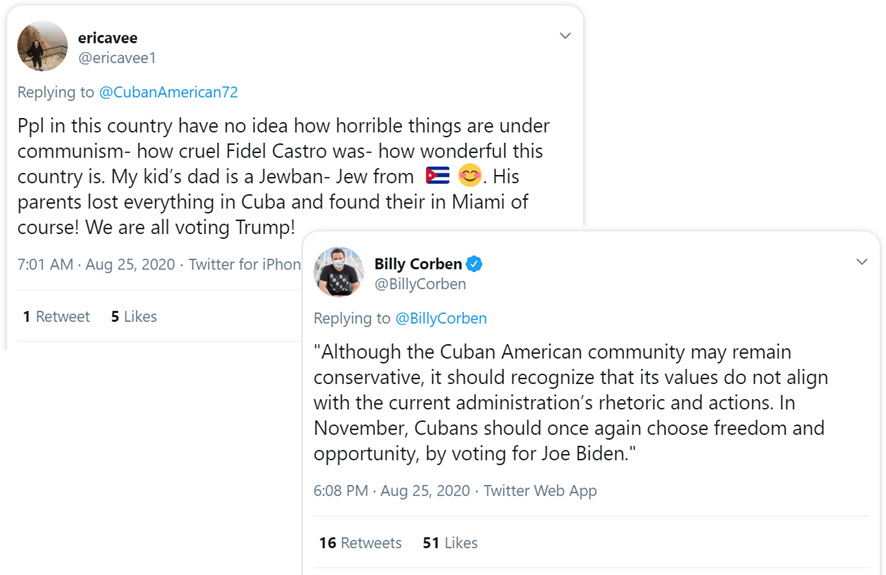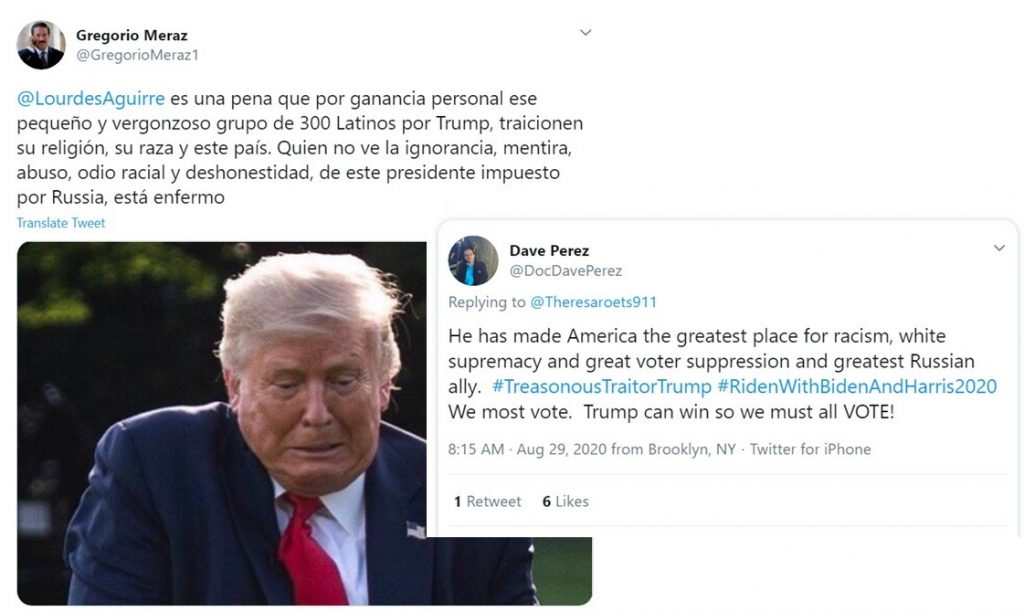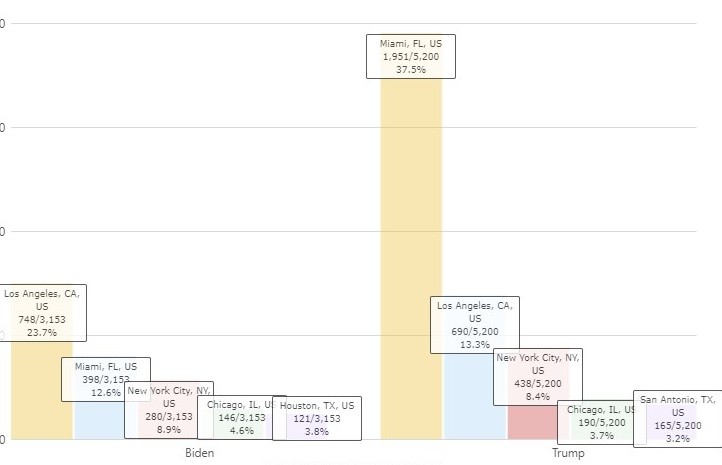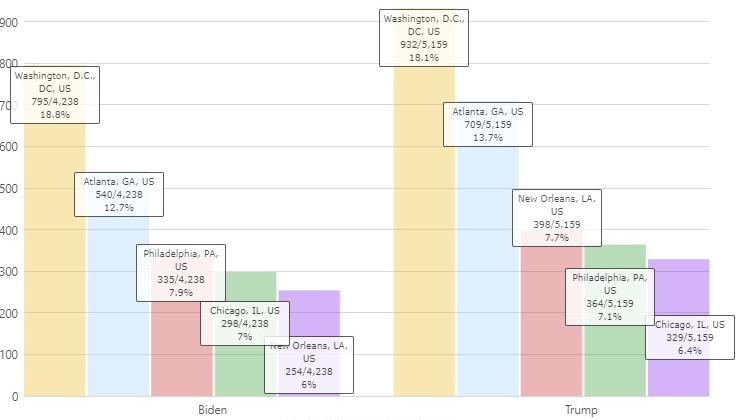As November 3rd grows closer, the 2020 presidential candidates are deeply embedded in the conversations of Hispanic and Black voters. Our team of data scientists at OY.E. Business Intelligence is set to track and analyze the pulse of minority voters every 30 days. During the past presidential elections of November 2016, our data predicted the outcome early on, and we saw a consistent volume of conversation and sentiment in favor of President Trump from white Americans and Hispanics as well. For 2020, we optimized the proprietary algorithm and expanded our analysis to understand the voice of the Black community in the U.S. in addition to the White and Hispanic America.
Our latest analysis collected a sample of 122,734 conversations on Twitter, of which 17,542 were from verified U.S. Hispanics and 12,915 were from verified Black Americans. The data was gathered from 08/24/2020 – 09/07-2020. Further data segmentation showed the volume of conversation for each candidate per different groups:

Using face recognition technology, a sample of 2,000 U.S. Hispanics and 1,500 Black Americans were further analyzed, and the largest percentage of engagement on Twitter primarily came from a mix of older Millennials and younger Gen-Xers. The largest generation of U.S. Hispanics talking about Biden was 35-44 year-olds (44.7%), followed by 45-54 year-olds (17.1%), similar to Trump, the largest conversation came from the 35-44 year-olds (48.3%), followed by 55-64 year-olds (17.4%). For Black voters, 35-44 year-olds made up 49.9% and 52.2% of the conversation for Biden and Trump respectively, however, both candidates had a higher engagement of the Black Gen-Z and young Millennials; Biden having 25.4% of tweets coming from users under 34 compared to Trump’s 21.8%.

However, the volume of conversation and age are some of the many indicators we analyzed. Sentiment and trending topics are two categories that can provide a deeper level of insight to identify multiple trends or patterns in a large volume of data, among the Latino vote, three trending topics starting to emerge:
Latino Trump Supporters
TREND 1: Blame on Liberal Democrat-run cities that did nothing to prevent or contain violence and chaos.

TREND 2: Consistent tweets about voting against a communist or socialist Democrat candidate and the use of #latinfortrump and #TRUMP2020ToSaveAmerica

TREND 3: Trump representing the American Dream for Cubans “I choose President Trump because I choose America”, “Freedom over Oppression”, the largest percentage of conversations for Trump originated in Florida.

Latino Biden Supporters
TREND 1: Concern of Trump’s Alliance with Russia and President Putin

TREND 2: Family of veterans in support of Biden with the hashtags like #VeteransAgainstTrump. Also support from LGBTQIA community “If you are Trump supporter, you’re not a LGBTQ supporter”

TREND 3: Many of Biden supporters are promoters of voter registration as well

Finally, geographic analysis of social data will allow candidates to have a more accurate picture of the 2020 race by region. For the period analyzed, Trump generated the most Hispanic conversation from Miami with 37.5% vs. Biden with 12.6%, these numbers have a direct correlation with Census data and large numbers of tweets from Cubans expressing support for Trump, the counties with the most concentration of Cubans in Florida are Miami-Dade, Broward, Hillsborough, and Palm Beach. Together, these countries account for more than half of all Cubans in the United States.

Among Black voters, the city with the most conversations for Biden came from Washington D.C. with 18.8% followed by Atlanta with 12.7%, respectably, Trump had 18.1% from Washington D.C. and 13.7%. Note that these are numbers reflecting the volume of total conversations and not necessarily support for one of the other candidates, further information for each city can be done through sentiment and trends analysis for each.

In the upcoming months, I will be comparing traditional data like polling and surveys versus big data from real-time social conversations to determine the accuracy and unbiased results.